Premium Only Content

Arnold Kling: Tribalism, Institutions, and the Crisis of Truth
Arnold Kling’s main concern is how people decide what to believe. He identifies two major errors: over-censoring dissenting views from the elite consensus and under-censoring conspiracy theories. The solution isn’t clear, but Kling acknowledges that tribalism plays a key role in obstructing truth-seeking. "People aren’t trying to change minds," he said. "They’re trying to close the minds of their own tribe."
I pointed out how platforms like TikTok reflect this manipulation. "In China, TikTok promotes education," I said. "But here, it pushes harmful content." Kling saw this as part of a broader strategy to weaken society, not just election interference. "It’s a long-term play," he remarked.
Our discussion turned to institutions like the media and academia, which, Kling argues, are meant to serve as marketplaces of ideas but have become compromised. "There’s a freezing out of conservative views," he noted. "Progressive ideas dominate, even when they should, in a fair contest, disappear."
When the topic shifted to Obama’s economic response to the financial crisis, I expressed skepticism about his strategy. "Obama just printed more money," I said. Kling explained that financial institutions exploit regulations for profit while socializing losses, pointing to the financial crisis as a prime example. "Regulation often invites corruption," he noted.
Education reform was another focal point. "The four-year college model is outdated," Kling said. He envisioned a new system where mentors replace traditional degrees, allowing for independent learning with occasional in-person gatherings. "The relationships built are more important than the degree itself."
We also explored how K-12 education, designed around consensus-building, stifles boys’ competitive nature. I argued that the system is too feminized. "Boys are wired for competition, but they’re turned into zombies," I said. Kling agreed, adding that boys are often labeled disruptive and medicated.
As we moved back to politics, I noted that Democrats are more focused on consensus, while Republicans are more individualistic. "The Democrats want to bring everyone together," I said. "Republicans emphasize competition." Kling saw this division as part of a broader ideological split between consensus-driven governance and competitive markets.
On foreign policy, Kling divided people into idealists, who see conflicts like the Ukraine war as moral crusades, and realists, who focus on national interests. Both groups have reasons to support the war, but those advocating for less involvement often hold little influence.
As we concluded, Kling returned to the idea that institutions need to rebuild trust. Whether in education, media, or government, they must regain their role as fair arbiters of truth. Libertarian perspectives, focused on liberty versus coercion, often go unheard in these debates. "The system perpetuates itself, even when it’s no longer working," Kling said.
-
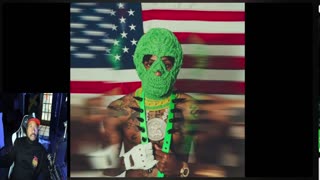 LIVE
LIVE
Akademiks
5 hours agoICE MAN EPISODE 2 tonight. NEW NBA YOUNGBOY 'MASA' TONIGHT. BIG AKADEMIKS #2 MEDIA PERSONALITY 2025.
3,077 watching -
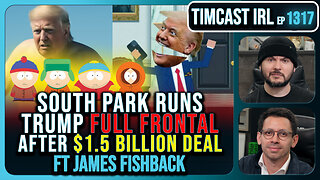 2:59:28
2:59:28
TimcastIRL
4 hours agoSouth Park Runs FULL FRONTAL Of Trump In Gross Parody After $1.5B Paramount Deal | Timcast IRL
211K92 -
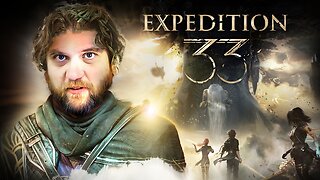 LIVE
LIVE
The Quartering
3 hours agoOn To The Big Bosses! Act 2 Of Expedition 33
782 watching -
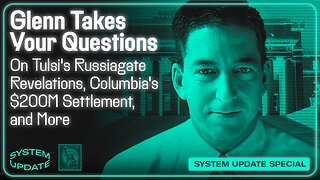 1:24:56
1:24:56
Glenn Greenwald
7 hours agoGlenn Takes Your Questions on Tulsi's Russiagate Revelations, Columbia's $200M Settlement, and More | SYSTEM UPDATE #492
106K53 -
 2:11:56
2:11:56
megimu32
4 hours agoOTS: With Great Power: Every Spider-Man Movie Unmasked w/ @thisistheraygaming
14.4K3 -
 2:38:48
2:38:48
WickedVirtue
3 hours agoSailing w/ The Crew
24.1K1 -
 4:29:37
4:29:37
Meisters of Madness
6 hours agoThe Finals with Redd
18.5K1 -
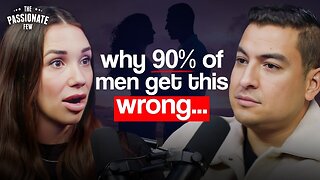 1:27:11
1:27:11
Omar Elattar
11 hours agoThe Dating Expert: "I've Helped 4,000 Men Find LOVE!" - The #1 Alpha Trait Women Secretly Crave!
31.9K -
 LIVE
LIVE
VOPUSARADIO
10 hours agoPOLITI-SHOCK! "END THE FED, END THE LIES & END THE DEEP STATE ONCE AND FOR ALL"!
264 watching -
 1:43:38
1:43:38
LumpyPotatoX2
6 hours agoRumble Creator Round-Table - Let's Talk About It
27.1K2